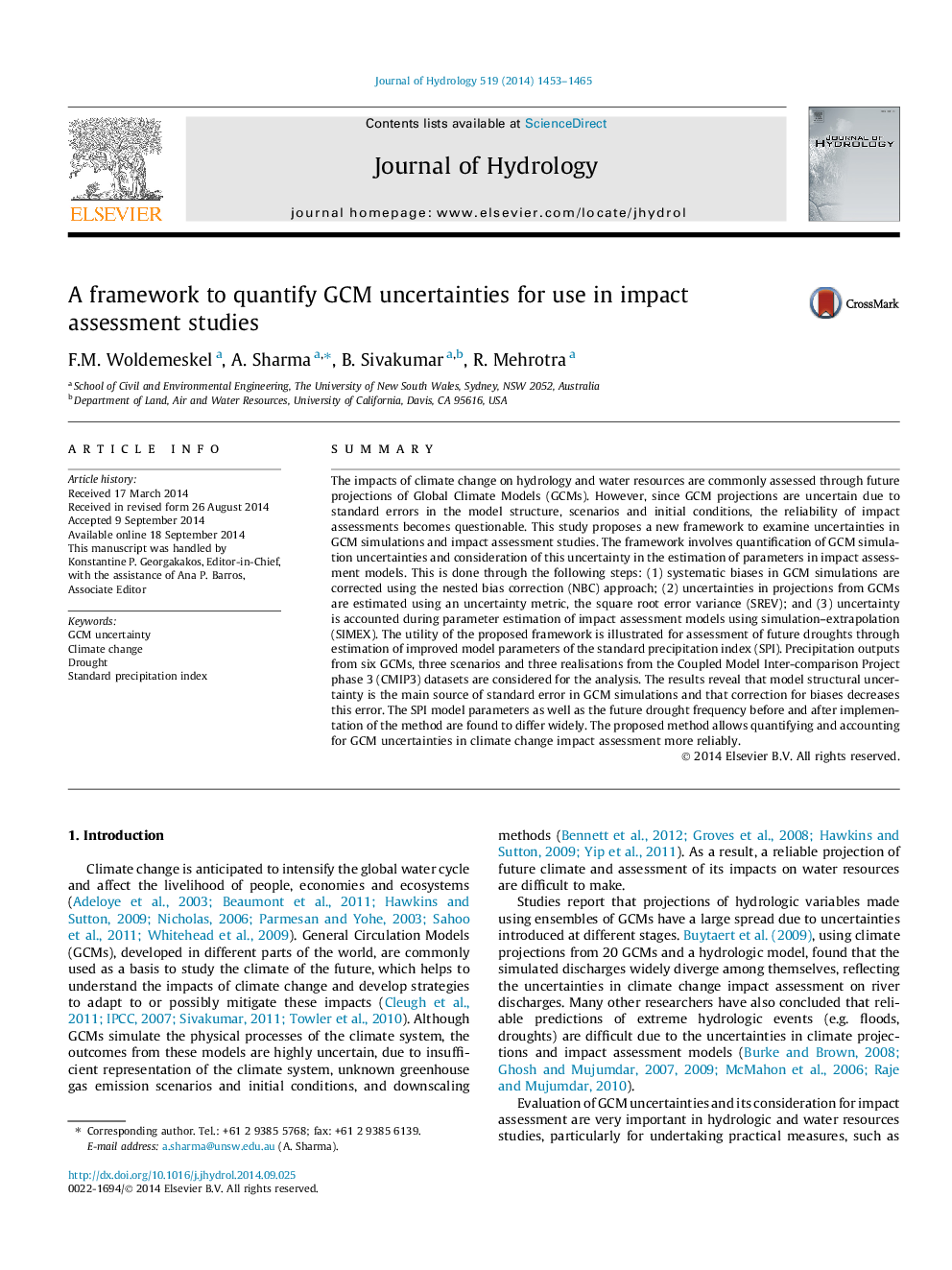| Article ID | Journal | Published Year | Pages | File Type |
|---|---|---|---|---|
| 6411929 | Journal of Hydrology | 2014 | 13 Pages |
â¢Uncertainties of GCM precipitation projections were evaluated.â¢Assessment of impacts of climate change on droughts is carried out with due consideration of the uncertainties.â¢Drought estimates before and after incorporating the uncertainties differ significantly.
SummaryThe impacts of climate change on hydrology and water resources are commonly assessed through future projections of Global Climate Models (GCMs). However, since GCM projections are uncertain due to standard errors in the model structure, scenarios and initial conditions, the reliability of impact assessments becomes questionable. This study proposes a new framework to examine uncertainties in GCM simulations and impact assessment studies. The framework involves quantification of GCM simulation uncertainties and consideration of this uncertainty in the estimation of parameters in impact assessment models. This is done through the following steps: (1) systematic biases in GCM simulations are corrected using the nested bias correction (NBC) approach; (2) uncertainties in projections from GCMs are estimated using an uncertainty metric, the square root error variance (SREV); and (3) uncertainty is accounted during parameter estimation of impact assessment models using simulation-extrapolation (SIMEX). The utility of the proposed framework is illustrated for assessment of future droughts through estimation of improved model parameters of the standard precipitation index (SPI). Precipitation outputs from six GCMs, three scenarios and three realisations from the Coupled Model Inter-comparison Project phase 3 (CMIP3) datasets are considered for the analysis. The results reveal that model structural uncertainty is the main source of standard error in GCM simulations and that correction for biases decreases this error. The SPI model parameters as well as the future drought frequency before and after implementation of the method are found to differ widely. The proposed method allows quantifying and accounting for GCM uncertainties in climate change impact assessment more reliably.
